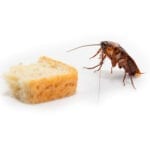Carpets can make any home feel warm and inviting, but they also come with one big downside: dust and other allergens tend to collect in carpets. If you suffer from allergies, the last thing you want to do is add more allergens into your home, so it’s important to keep your carpets clean enough to prevent this from happening. Here are some helpful tips to use when cleaning your carpets and keeping your allergies under control.
Understanding allergy causes
There are a variety of potential causes for allergies, so it’s important to get an accurate diagnosis from your doctor. Many factors can be at play, including changes in humidity or temperature, dust mites, mold spores, pet dander and even perfumes. By taking note of what season(s) you experience allergy symptoms and working with your doctor to pinpoint any other triggers that you may have avoided in the past, you’ll be able to get better control over your allergies—and keep them under control. Additionally, if there is a family history of allergies then finding out which allergies run in your family will also give valuable insight into potential causes for your allergy symptoms.
If you find your allergies are worse inside your home, they may be caused by pet hair and trapped allergens within your carpet. Thankfully, professional cleaning of your carpets can eliminate potential triggers of allergies from your carpets. With a more thorough cleaning of your carpets, you can clean away dust mites that cause more allergy problems than any other source of indoor allergen exposure according to Asthma UK. By removing dirt and grime from deep in your carpet, cleaning will help stop people with mild allergies from reacting when they come into contact with allergens on their skin or inhale them through their nose or mouth.
Reasons people are allergic to carpets
In recent years, carpeting has been accused of causing all kinds of allergic reactions—from hay fever to asthma. Many blame carpet fibers for these symptoms, but it’s important to understand that a carpet itself does not cause allergies; rather, it’s dust mites that live in your carpets that cause your body to react. These microscopic bugs live on almost any surface with fabric—not just carpets. To make matters worse, their feces is released into the air after they eat dead skin cells (gross). Thus, when you sit on your carpeted floor, you breathe in tiny amounts of feces particles. Your immune system reacts by releasing histamines; although they may feel like an irritation to some people (who then assume that carpeting caused their allergy), histamines are actually meant to protect us from germs. So what should you do? If your allergies seem to flare up more often while sitting on your carpeted floors, vacuum them frequently (you don’t need to overdo it) or even invest in area rugs without too much cushion or wool, which can retain more allergens than synthetic materials.
If you’re still having symptoms, the best way to make sure your carpets are clean and free of allergens is to get your carpets professionally cleaned.

Dust mites
Carpets attract dust mites. These microscopic bugs feed on skin cells that get trapped in fibers, triggering allergic reactions such as sneezing, itching and watery eyes. Although they’re only about 1 millimeter long, these bugs can live up to 14 days at room temperature—meaning they may be crawling through your carpet right now. Steer clear of carpeted rooms when possible. If you can’t avoid them entirely, consider installing washable rugs in high-traffic areas. Wash them regularly; vacuum your carpets (and upholstery) twice a week, and keep humidity below 60 percent. Anything less than 50 percent is best for people with allergies or asthma. Also consider investing in a HEPA filter vacuum cleaner, which uses a special type of filter technology designed to remove allergens from your home without releasing them back into the air. They cost more upfront but will save you money in medical bills over time. Just make sure the model offers an allergy control option before buying it.
Mold
As harmless as it may seem, mold is a serious culprit when it comes to allergies. The substance thrives in moist environments, which explains why it’s more prevalent in regions with rainy seasons—and why living in a warm, moist apartment during allergy season can cause a number of breathing problems. Carpets may retain moisture that can grow into mold or mildew; cleaning your carpet regularly is one way to minimize these effects. Although many molds are invisible to the naked eye, they release allergens that trigger reactions like watery eyes and sneezing. Long-term exposure could even lead to nasal polyps or chronic sinus infections. If you live in an area prone to mold growth, use an air purifier and encourage ventilation to get rid of excess moisture. Some antihistamines can also help reduce symptoms. In extreme cases, consult your doctor about taking immunotherapy medication such as Rhinocort Aqua (which treats allergic rhinitis).
Pollen and other allergens
In addition to dust mites and mold, other allergens such as pollen and pet dander can be a major cause of asthma and allergies in the home. Carpets may trap these particles inside your home, particularly if you live in an area with lots of seasonal changes. However, carpets don’t always trigger an allergic reaction; it’s possible for someone to be allergic to something but not experience symptoms until they touch or walk on it. Regular vacuuming is also important for keeping allergy-causing pollutants at bay and ridding your carpet of allergen-carrying debris. Cleaning up after pets regularly is also key since dog and cat hair can become airborne when rubbed against carpets—and spread allergens throughout your home. These tips will help keep everyone healthy and happy!
Tips for keeping your allergies under control
If you’re like most people, you’ve got a carpet somewhere in your home. Unfortunately, many carpets contain allergens that can give people headaches or make them cough and sneeze. Fortunately, there are plenty of ways you can keep your carpet (and your allergies) under control.
Here are three tips for making sure your carpet doesn’t give you any trouble:
1. Vacuum your carpets and rugs regularly
2. Ensure you are having your carpets and rugs professional cleaned frequently
3. If allergies are triggered by pet dander, keep your pets outside or away from carpet and rugs
4. See a doctor to determine what is setting your allergies off, and what you can do to manage or treat them
Carpet Cleaning on the Fraser Coast
At Ivey’s Carpet Cleaning and Pest Control, offer carpet steam cleaning, upholstery cleaning, pest control, termite treatment & inspections and building & pest inspections in the Fraser Coast region including Maryborough, Hervey Bay, Tiaro and surrounds. We have over 18 years of experience and are committed to safe products, great results and friendly service! Contact us today on 4122 4148 or fill in our quote form here for a FREE quote.



